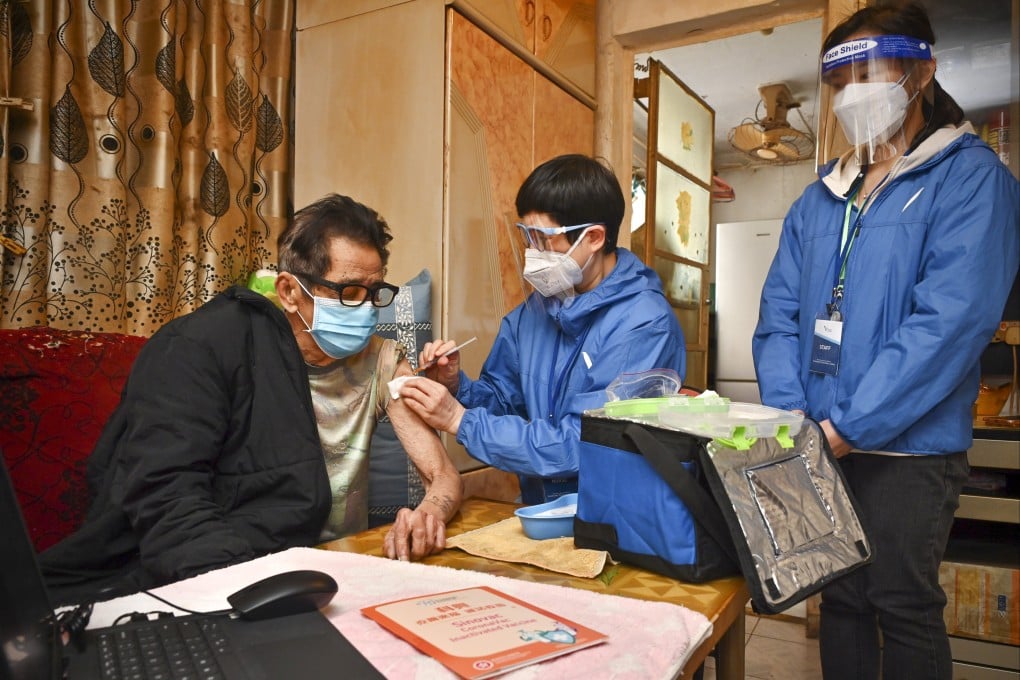Coronavirus Hong Kong: new QR code for recovered residents will be accepted for vaccine pass, officials reveal, as at-home vaccination bookings open for elderly and disabled
- New QR code is valid for six months from date of resident’s recovery and will be viewed as equal to one jab for purposes of vaccine pass
- Online bookings also open for door-to-door vaccination services for elderly and people with disabilities, with four to five districts covered a week

The launch of the record came as health authorities reported 600 coronavirus infections, the fifth straight day where cases were below the 1,000 mark, and 17 deaths related to the virus. Fourteen students and a teacher were among the newly infected, and they were identified during tests carried out as in-person classes resumed following a three-month suspension.
“Does it mean I don’t need to get vaccinated for six months? I think they are two different concepts. As ever, if residents want to protect themselves … they can get vaccinated after 28 days of recovery,” he said.
Tsui noted that people who were unsure whether they had been infected in the past would not be able obtain the document, adding that they could safely get a vaccine shot 28 days after recovering.
Tsui said a “transition period” would last until June 30, during which recovered residents would still be allowed to use other documents such as hospital discharge papers or positive PCR test result notifications for the vaccine pass. But a photo of a positive rapid test result would not be considered valid.